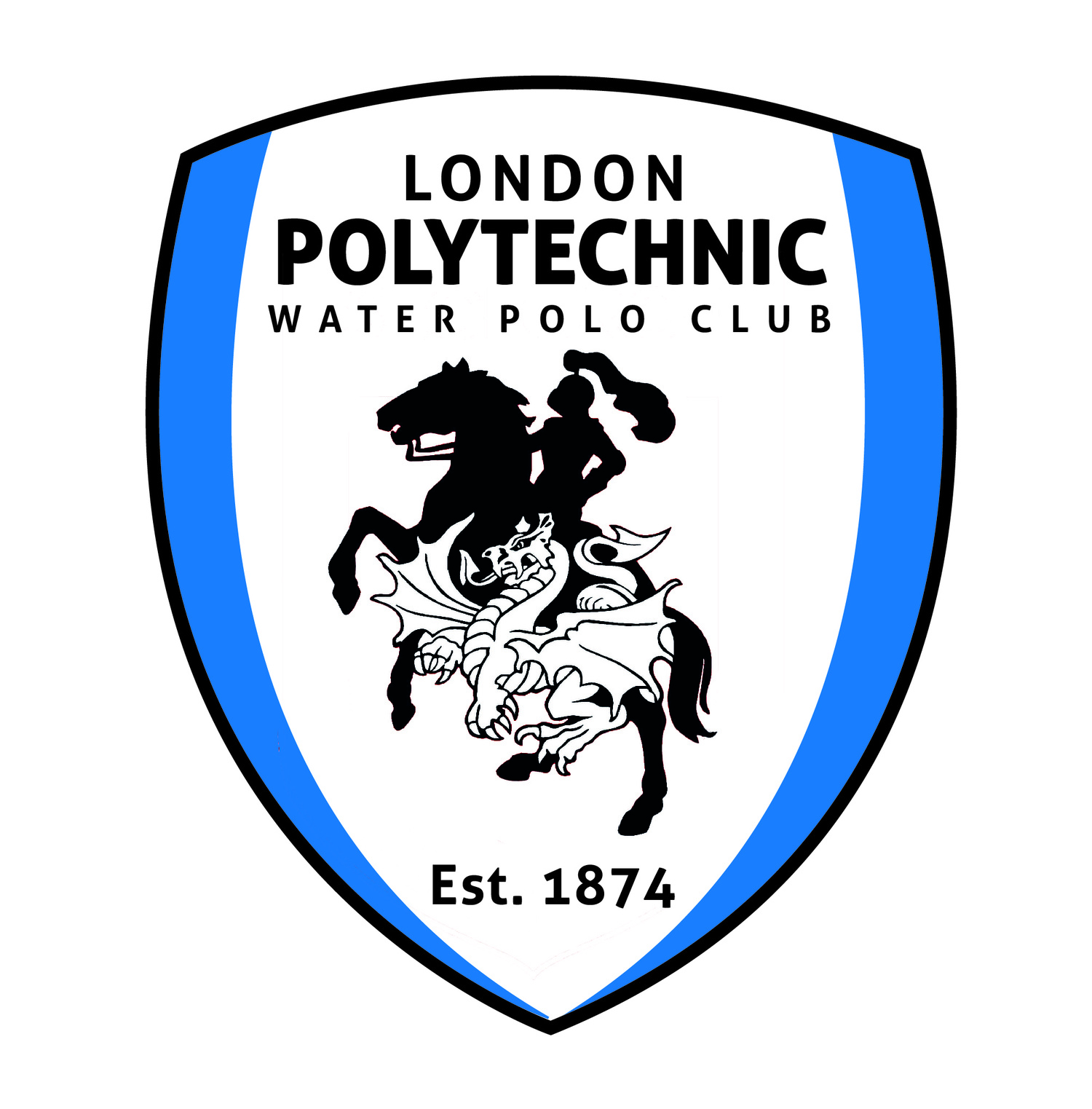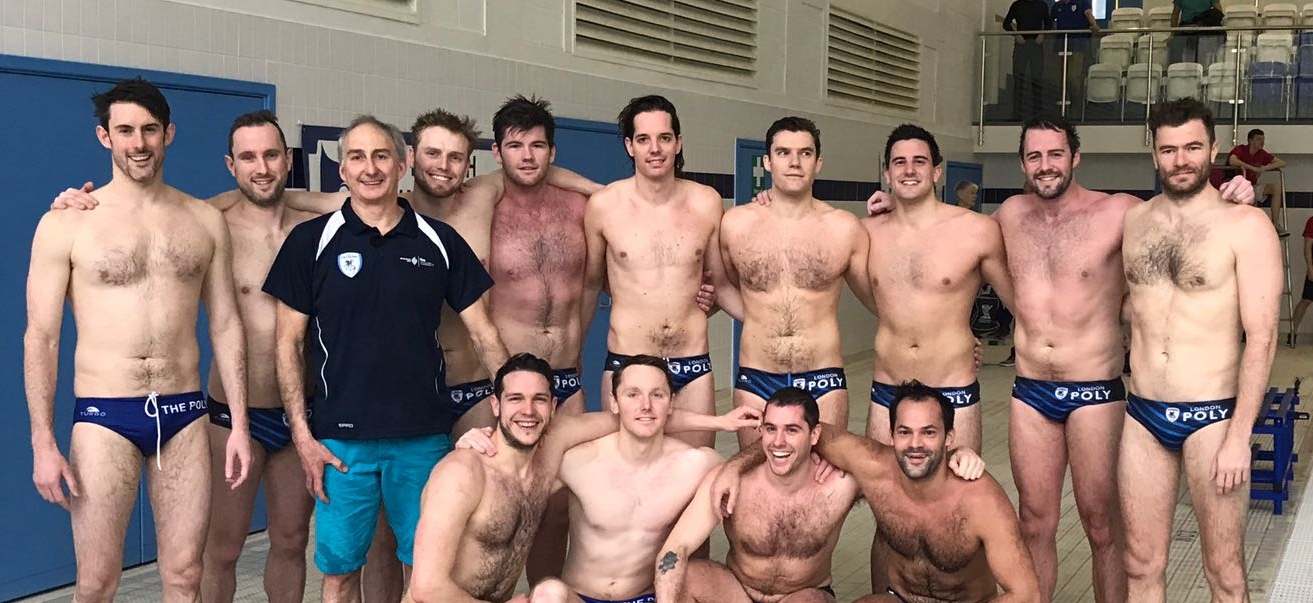Polytechnic Water Polo Club has a proud history stretching way back to 1874. The club is based in central London and is one of the oldest and most successful water polo clubs in the UK. Although we are competitive and take our water polo seriously we are also a friendly and sociable club.
If you are interested in joining one of our teams, or getting involved in the club in some other way, please feel free to contact our club secretary on: reddicj@gmail.com
Club Achievements
British Water Polo League
1968·1969·1970·1972·1973·1974·1975·1976·1977·1979·1985·1986·1988·1991·1992·1993·1994·2023
British Championship Winners
1987·1990·1991·1992·1993·1994·1995·2023
National Knockout Winners
1956·1957·1960·1963·1969·1970·1971·1972·1976·1977·1978·1979·1981·1982·1986·1987·1988·1990·1991
Club History Overview
The 'Poly' was formed in 1874, as part of the Polytechnic of Central London Institute, which can boast among its achievements the staging of the 1908 Olympics at White City. (The Olympic pool, at the City University site, was still used by the Poly for training until a few years ago when, sadly, the roof fell in!)
In the early days the club was very much a joint Swimming and Water Polo Club and it was a swimmer who first brought an English Championship to the Poly. Touring was important to the club from the beginning and the World Encyclopaedia of Water Polo records an 1896 game played between Poly and Brussels in Vienna, a match which sparked the development of the sport in Hungary. Honours eventually followed for the water polo team. According to the Poly Magazine, Harold Pycock represented GB at water polo in the 1924 Olympics in Paris, as well as swimming in the 100m freestyle event. He was followed in slightly more recent times by Peter Pass and Bob Knights who competed at the 1956 Melbourne Games.
The modern Poly really took shape in the 1950's with the team built around the outstanding talents of Peter Pass (later to be made an MBE for his services to water polo) which won the first of Poly's trophies, the 1956 ASA National Championship, a knock-out cup. Neil May, known then and by future generations of Poly players as 'Mother', joined soon after, and it was Mother's guiding hand and attitude to training which helped that, and future sides, to enjoy huge success. In 1968, after 3 further cup wins, the top prize of the English League Championship finally came to the Poly for the first of 18 occasions.
Poly have also had some success in the European Cup competition and got through the first round in 1971 having finished second in their Group to CSKA Moscow, and in front of Antwerp and Marseille. The semi-final round took place on the Island of Hvar (was Yugoslavia, now Croatia), and Poly played De Robben (Holland), Mladost Zagreb (Yugoslavia - with 6 1968 Olympic Gold Medal winners and winners of the European Cup that year) and Olympiakos (Greece). Poly finished last, but drew with Olympiakos and only lost 4-6 to De Robben, who finished second and therefore made it to the finals. This team included players such as Glyn Berry, a great two yard forward.
Poly players continued to represent the GB team in the World and European Championships, as well as the Olympics, although Britain has had limited success internationally since qualification rules were first introduced in 1960. The GB team of the early 1970s was built around players from the Poly squad, including at various times Terry Bensted (Captain), Roddy Jones, Chris Ayling, Andy Lench, Tony Meek, David Chapman and Peter McCartney. In the World Championships, GB did qualify once, in 1973, and took a team to Belgrade, which comprised six Poly players out of 11. In the European Championships in Vienna the following year, Poly also supplied six of the 11 in a team that achieved a best-ever position of 10th; and in 1976 Poly supplied 4 of the starting 7 in a side that got within one goal of qualifying for the Olympics.
On the back of the success of the early 1970s a stream of superb players were drawn to the capital to play for the Poly (often via London University) and, after a transitional few years, another great team emerged in the late 1980s and early 1990s, based around a squad which included Andy Knight, Robert Eastman, Jez Sherman, Alan Anderson, Kevin Roberts and, possibly the greatest of them all, Jerry Birmingham. During the early 1990s Poly dominated the National Water Polo League and competed regularly in Europe, although still with limited success given the professional sides they were up against. The 1992 side in Finland lost only to the European Champions from Germany but still found themselves eliminated on a bizarre technicality!
Sadly Poly’s period of supremacy came to an end in 1995 but, in 2023, after many years of struggle, the club regained top position in the country, winning both the British Water Polo League and the Champions Cup. As a result they qualified for the preliminary round of the European Club Championships in Istanbul, where they performed creditably but were again unable to qualify for the next round. BWPL top goalscorer Liam Neill, a key member of the team, represented South Africa in the 2024 World Championships in Doha, having played in the Tokyo Olympics of 2020.

